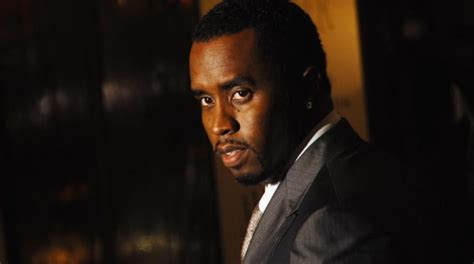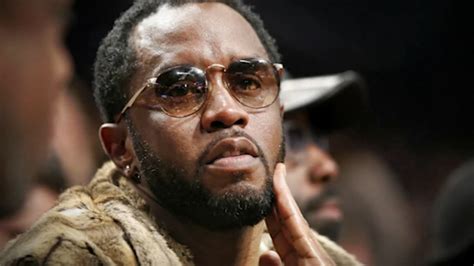
The legal proceedings in Sean “Diddy” Combs’ ongoing case have been temporarily suspended due to unforeseen circumstances, creating uncertainty and speculation surrounding the future of the trial. The specific reason for the halt remains undisclosed, leaving legal experts and observers to speculate about potential implications for the case.
The pause in the trial comes amidst mounting scrutiny and legal challenges for Combs, who faces multiple allegations of sexual assault and misconduct. Several lawsuits have been filed against him in recent months, painting a disturbing picture of his alleged behavior over the years. The accusations range from sexual battery and harassment to infliction of emotional distress, with plaintiffs detailing harrowing experiences and seeking significant financial compensation.
The unexpected delay has raised questions about whether it is a strategic move by either the prosecution or defense, or due to external factors such as witness availability or new evidence surfacing. The lack of transparency regarding the reasons behind the suspension has only fueled further speculation within the legal community and the public eye.
“The trial’s suspension introduces a layer of complexity to an already intricate legal battle,” said Emily Baker, a legal analyst following the case closely. “The lack of clarity surrounding the reasons for the delay leaves room for speculation and potentially impacts the overall trajectory of the proceedings.”
The Combs case has garnered significant media attention due to the high profile of the defendant and the gravity of the allegations. The unfolding legal drama has sparked widespread discussions about accountability, power dynamics, and the treatment of individuals within the entertainment industry. As the legal saga continues, many are closely watching to see how the justice system will address these serious claims and what consequences may follow.
Background of the Allegations
The recent surge of legal actions against Sean Combs stems from a series of allegations that span several decades. These accusations have surfaced primarily in the wake of the New York Adult Survivors Act, which temporarily lifted the statute of limitations for sexual assault cases, allowing individuals to pursue legal claims regardless of how long ago the alleged incidents occurred.
One of the most prominent lawsuits was filed by singer Casandra Ventura, known professionally as Cassie, who accused Combs of subjecting her to years of abuse, including physical violence, sexual coercion, and emotional manipulation. Ventura’s lawsuit was settled swiftly, just days after it was filed, but the allegations contained within it opened the floodgates for other accusers to come forward.
In her lawsuit, Ventura described a pattern of controlling behavior, intimidation, and escalating violence. She alleged that Combs isolated her from her friends and family, monitored her communications, and subjected her to relentless demands. She also claimed that he engaged in violent outbursts, physically assaulting her on multiple occasions.
Ventura’s decision to settle the lawsuit raised eyebrows, with some speculating that a significant financial agreement was reached to prevent further details from emerging in court. However, the settlement did not stop other individuals from pursuing their own legal claims against Combs.
Several other accusers have since filed lawsuits against Combs, each detailing similar patterns of abuse, coercion, and exploitation. One plaintiff alleged that Combs drugged and sexually assaulted her when she was a minor. Another claimed that he subjected her to years of sexual harassment and intimidation while she worked for him.
These lawsuits have presented a consistent narrative of alleged misconduct, painting a disturbing picture of Combs’ behavior over the years. The allegations have prompted widespread condemnation and calls for accountability, with many urging the justice system to thoroughly investigate the claims and bring Combs to justice if the allegations are proven true.
Impact on Sean Combs’ Empire
The allegations against Sean Combs have had a significant impact on his business empire, which includes record labels, fashion lines, and beverage companies. Several major brands have distanced themselves from Combs in response to the accusations, severing ties and suspending partnerships.
One of the most notable examples is Revolt TV, a music-oriented television network founded by Combs. While Combs has stepped down from his role as chairman of the network, the allegations have cast a shadow over the company’s future. Several artists and employees have expressed concerns about the culture within the company, and there have been calls for greater transparency and accountability.
Other companies associated with Combs, such as his clothing line Sean John and his vodka brand Ciroc, have also faced scrutiny. Retailers have pulled Sean John products from their shelves, and there have been boycotts of Ciroc vodka. The allegations have also damaged Combs’ reputation within the music industry, with several artists and producers publicly condemning his alleged behavior.
The financial impact of these allegations on Combs’ empire is significant. The loss of partnerships and endorsements, combined with the potential for costly legal settlements, could significantly erode his wealth. Moreover, the damage to his reputation could make it difficult for him to attract new business opportunities in the future.
The allegations against Combs have also raised questions about the culture within the entertainment industry, particularly the power dynamics between executives and aspiring artists. Many have called for greater protections for individuals who are vulnerable to abuse and exploitation, and there have been renewed efforts to promote transparency and accountability within the industry.
Legal and Procedural Aspects of the Case
The legal proceedings against Sean Combs are complex and multifaceted, involving multiple lawsuits filed in different jurisdictions. The cases raise a variety of legal issues, including statutes of limitations, evidence admissibility, and witness credibility.
One of the key challenges in these cases is overcoming the statute of limitations, which typically sets a time limit for filing a lawsuit. However, the New York Adult Survivors Act temporarily lifted the statute of limitations for sexual assault cases, allowing individuals to pursue claims that would otherwise be barred.
Another challenge is gathering evidence to support the allegations. Many of the alleged incidents occurred years or even decades ago, making it difficult to obtain witness testimony or documentary evidence. However, plaintiffs may be able to rely on other forms of evidence, such as emails, text messages, or social media posts, to corroborate their claims.
The credibility of witnesses is also a critical factor in these cases. Defense attorneys are likely to challenge the motives and memories of the accusers, arguing that their claims are unreliable or motivated by financial gain. Prosecutors will need to carefully vet the witnesses and present compelling evidence to persuade a jury that their testimony is credible.
The legal proceedings against Combs are likely to be protracted and contentious, with both sides engaging in aggressive litigation tactics. The outcome of these cases will depend on a variety of factors, including the strength of the evidence, the credibility of the witnesses, and the skill of the attorneys.
Possible Outcomes and Consequences
The possible outcomes of the legal proceedings against Sean Combs range from settlements to criminal charges, depending on the specific allegations and the evidence presented.
In civil lawsuits, the most common outcome is a settlement, in which the parties agree to resolve the dispute out of court. Settlements typically involve a financial payment from the defendant to the plaintiff, in exchange for the plaintiff dropping the lawsuit. Settlements can be reached at any stage of the litigation, from the initial filing of the lawsuit to the eve of trial.
If a settlement cannot be reached, the case may proceed to trial. At trial, both sides will present evidence and arguments to a judge or jury, who will then decide whether the defendant is liable for the alleged wrongdoing. If the defendant is found liable, the judge or jury will award damages to the plaintiff, which could include compensatory damages (to cover the plaintiff’s losses) and punitive damages (to punish the defendant for egregious conduct).
In addition to civil lawsuits, Combs could also face criminal charges if prosecutors believe there is sufficient evidence to prove that he committed a crime. Criminal charges could range from sexual assault to drug offenses, depending on the specific allegations. If convicted of a crime, Combs could face imprisonment, fines, and a criminal record.
The consequences of the legal proceedings against Combs could be severe, both personally and professionally. In addition to the potential for financial losses and imprisonment, Combs could also suffer irreparable damage to his reputation, which could affect his ability to earn a living and maintain relationships.
The outcome of these cases will have a significant impact on Combs’ life and legacy, and it will also send a message about accountability and justice within the entertainment industry.
The Broader Context: Abuse in the Entertainment Industry
The allegations against Sean Combs are part of a broader pattern of abuse and misconduct within the entertainment industry. For years, powerful figures in Hollywood and the music industry have been accused of exploiting their positions of authority to harass, abuse, and exploit vulnerable individuals.
The #MeToo movement, which began in 2017, has brought these issues to the forefront, empowering victims to come forward and share their stories of abuse. The movement has led to the downfall of several prominent figures in the entertainment industry, including Harvey Weinstein, Kevin Spacey, and Bill Cosby.
The allegations against Combs are a reminder that abuse and misconduct remain pervasive in the entertainment industry, despite the progress that has been made in recent years. Many individuals, particularly young and aspiring artists, are still vulnerable to exploitation by powerful figures who can make or break their careers.
Addressing this problem requires a multi-pronged approach, including stronger legal protections for victims, greater transparency and accountability within the industry, and a cultural shift that challenges the power dynamics that enable abuse. It also requires a willingness to listen to and believe victims, and to support them as they seek justice.
The ongoing legal proceedings against Sean Combs represent a critical test of the justice system’s ability to hold powerful individuals accountable for their actions, and to provide justice for victims of abuse. The outcome of these cases will have far-reaching implications for the entertainment industry and for society as a whole.
Frequently Asked Questions (FAQ)
-
Why was Sean “Diddy” Combs’ trial halted?
- The specific reasons for the trial’s suspension have not been publicly disclosed, leading to speculation regarding potential strategic moves by either the prosecution or defense, witness availability, or the emergence of new evidence. According to the Yahoo News article, the lack of transparency fuels uncertainty about the future of the legal proceedings.
-
What are the primary allegations against Sean Combs?
- Combs faces multiple lawsuits alleging sexual assault, misconduct, and abuse. These include accusations of sexual battery, harassment, and infliction of emotional distress. Singer Casandra Ventura, known as Cassie, filed a lawsuit accusing Combs of years of abuse, including physical violence and sexual coercion.
-
How have the allegations impacted Combs’ business empire?
- The allegations have significantly impacted Combs’ business ventures, including Revolt TV, Sean John clothing line, and Ciroc vodka. Brands have distanced themselves, partnerships have been suspended, and there have been boycotts. Combs stepped down as chairman of Revolt TV. The reputational and financial damage is substantial.
-
What are the legal challenges in prosecuting these cases?
- Key legal challenges include overcoming the statute of limitations, gathering evidence for incidents that occurred years or decades ago, and establishing witness credibility. The New York Adult Survivors Act lifted the statute of limitations temporarily. Attorneys must vet witnesses and present compelling evidence.
-
What are the possible outcomes of the legal proceedings?
- Possible outcomes range from settlements to criminal charges. In civil lawsuits, settlements involve financial payments to the plaintiff. If a settlement isn’t reached, the case may proceed to trial, where a judge or jury will determine liability and damages. Criminal charges could lead to imprisonment, fines, and a criminal record.
Expanded Analysis and Context
The Sean Combs case is not merely a legal battle; it represents a seismic event within the entertainment industry, exposing deep-seated issues of power, abuse, and accountability. The allegations against Combs have resonated far beyond the courtroom, sparking conversations about the treatment of artists, the culture within record labels, and the responsibility of corporations to protect individuals from harm.
The suspension of the trial, while shrouded in mystery, underscores the complexity of the case and the potential for unexpected developments. It is not uncommon for legal proceedings to encounter delays, but the lack of transparency surrounding the reason for the halt has fueled speculation and intensified scrutiny. Legal experts suggest that the delay could be due to a variety of factors, including ongoing negotiations between the parties, the discovery of new evidence, or challenges related to witness availability or testimony.
One of the key aspects of the case is the sheer number of accusers who have come forward, detailing similar patterns of alleged misconduct. This has created a powerful narrative that cannot be easily dismissed. The consistency of the allegations suggests that the alleged behavior was not isolated incidents but rather a pattern of abuse that spanned many years.
The impact on Combs’ business empire is undeniable. The loss of partnerships and endorsements is a significant blow, not only financially but also reputationally. Brands are increasingly sensitive to allegations of misconduct, and they are quick to sever ties with individuals who are perceived to be toxic or controversial. The fact that major corporations have distanced themselves from Combs is a testament to the seriousness of the allegations and the potential damage to their own reputations.
The legal challenges in prosecuting these cases are significant. The statute of limitations is a major hurdle, as many of the alleged incidents occurred years or even decades ago. However, the New York Adult Survivors Act has provided a window of opportunity for victims to pursue claims that would otherwise be barred. Gathering evidence is also a challenge, as memories fade and witnesses may be reluctant to come forward. Prosecutors will need to rely on a variety of sources, including emails, text messages, photographs, and financial records, to corroborate the allegations.
The possible outcomes of the legal proceedings are far-reaching. A settlement is always a possibility, but it is unclear whether Combs would be willing to settle given the potential for further lawsuits and reputational damage. If the cases proceed to trial, the stakes are high. A conviction could result in imprisonment and financial penalties, while an acquittal could embolden other alleged perpetrators and discourage victims from coming forward.
The Combs case also highlights the need for greater protections for individuals within the entertainment industry. Aspiring artists are often vulnerable to exploitation by powerful figures who can control their careers. There needs to be a greater emphasis on transparency, accountability, and due process to ensure that individuals are treated fairly and that allegations of misconduct are properly investigated.
Furthermore, the case raises questions about the role of corporations in addressing allegations of abuse. Companies have a responsibility to create a safe and respectful work environment for all employees, and they should not tolerate misconduct of any kind. This includes conducting thorough investigations of allegations, taking appropriate disciplinary action against perpetrators, and providing support for victims.
The Sean Combs case is a complex and multifaceted legal drama that has captured the attention of the world. The outcome of these cases will have a profound impact on Combs’ life and legacy, and it will also send a message about accountability and justice within the entertainment industry. It is essential that the legal proceedings are conducted fairly and impartially, and that all parties are given the opportunity to present their case.
The case serves as a reminder that abuse and misconduct are not isolated incidents but rather systemic problems that require a comprehensive and coordinated response. It is up to all of us to create a culture of respect, accountability, and justice within the entertainment industry and beyond. The hope is that this case will serve as a catalyst for change, empowering victims to come forward and holding perpetrators accountable for their actions.









